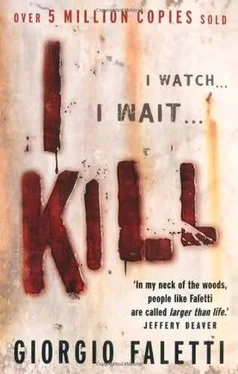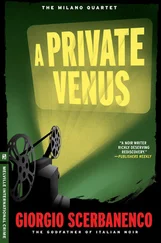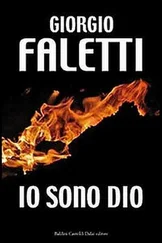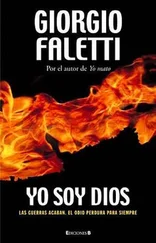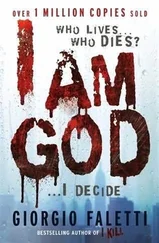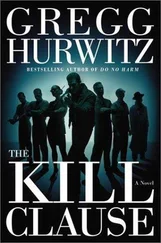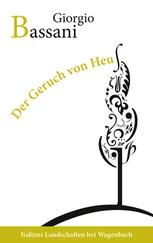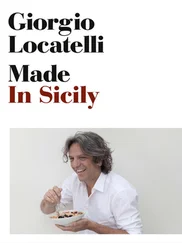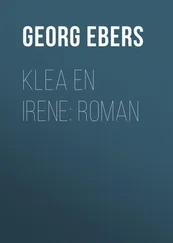The road continued to climb. It was lined with trees whose large trunks obstructed the view of the sea. The patches of bright flowers had disappeared as he left the town, replaced by evergreen trees and bushes and the sharp scent of pine and thorn mixed with the smell of the sea. He drove on for a couple of miles, beginning to suspect that the old man had given him the wrong directions, simply for the satisfaction of letting him drive around in circles. He was probably at home now with some guys named Jean or René, eating his sea urchins and laughing at the stupid tourist whom he had sent round and round the mountain.
Just as that image flashed through his mind, there was a bend in the road and then, beyond, La Patience. He gave thanks to Jean-Paul Francis and his magic box. If Hulot ever managed to get his hands on that Robert Fulton record, it would only be fair to return it to Jean-Paul.
His heart was beating hard as he drove towards the farmhouse, which stood out from the mountain as if it were leaning against it.
He drove under a brick archway covered with vines and turned on to the driveway leading to the barn beside the large two-storey house. As he drove up, disappointment slowly overtook the feeling of triumph that the view of the house had first elicited. The gravel path was overgrown with weeds and all that was left were two tracks made by car wheels. As he drove up, the sound of his car scraping against the gravel was strangely sinister.
Now that his perspective had changed, he could see that the back of the house was in ruins. The roof had almost completely collapsed and only the front was still standing. Blackened beams rose towards the sky from what was left of the frame of the house, and the tiles had scattered on the ground. The crumbling walls were encrusted with soot, signs of a devastating fire that had practically finished off the house, but had left the facade still standing like scenery in a theatre.
It must have happened some time ago if the weeds and vines had been able to regain possession of what had been theirs to begin with. It was as if nature had slowly and patiently stitched a delicate bandage to cover the wounds inflicted by man.
Hulot left his car in the courtyard and looked around. The view was magnificent. He could see the entire valley, dotted with isolated houses and vineyards alternating with vegetation that grew sparser as it reached the town. Cassis, beautiful and white, leaned over the coast like a woman on a balcony watching the sea on the horizon. There were the ragged remains of a garden, with rusty wrought-iron railings that spoke of former splendour. The garden must have been spectacular when it was in bloom. Now it was overgrown with neglected lavender bushes.
The closed shutters, the peeling walls and the weeds that reached into every crevice like a pickpocket into a woman’s purse, gave off a depressing sense of desolation and abandonment.
He saw a van drive up from the road and turn into the drive. Hulot stood in the middle of the courtyard and waited. A yellow Renault Kangoo pulled up next to his Peugeot and two men got out, both in work clothes. The older man was about sixty and the younger one in his thirties, a thickset type with a hard face and a long, dark beard. The younger man didn’t even bother looking at him. He went around to open the back of the van and started taking out gardening tools.
The other man gave him instructions. ‘Get started, Bertot. I’ll be right there.’
After making it clear that he was in charge, the man approached Hulot. Up close, his snub-nosed face did not exactly sparkle with intelligence. He looked like a leaner, more seasoned version of the other man.
‘Hello.’
‘Afternoon.’
Hulot tried to head off any trouble by acting humble right away. He smiled and tried to look innocent.
‘I hope I haven’t done anything wrong, and I’m sorry if I have. I think I got lost, away back there. I kept going, looking for a place to make a U-turn, and ended up here. Then I saw the ruined house and curiosity got the better of me, so I came over to take a look. I’ll leave right away.’
‘No problem. No trouble. There’s nothing left here worth stealing, aside from the dirt and the weeds. You a tourist?’
‘Yes.’
‘That’s what I guessed.’
You guessed, my arse, Gaston-le-beau! You just saw my Monte Carlo plates. Any halfwit could figure that out.
‘Every once in a while someone comes up here.’ The man shrugged modestly. ‘By accident, like you, but mostly out of curiosity. People from Cassis don’t like coming up here. I’m not thrilled about it either, to tell you the truth. After what happened… But a job’s a job after all and you can’t be too picky these days. Anyway, as you can see, we always come in pairs. So many years have passed, but I still get the chills.’
‘Why? What happened here?’
‘You don’t know the story of La Patience?’
He looked at Hulot as though it were impossible for anyone on the planet not to know the story of La Patience.
Nicolas gave him an opening. ‘No, I don’t think I’ve ever heard about it.’
‘Well, there was a crime here. Actually, a series of crimes. You really never heard about it?’
‘No, never.’ Hulot felt his pulse racing.
The man pulled out a packet of tobacco and skilfully rolled a cigarette with papers fished from his waistcoat pocket. As always happens with people who realize they are in possession of an interesting story, he savoured every moment of his narration.
‘I don’t know every last detail because I wasn’t living in Cassis at the time. But apparently the guy who lived here killed his son and the housekeeper before burning the house down and shooting himself in the head.’
‘Good heavens!’
‘You said it. But in town they say he was half-crazy anyway and that in the twenty years he lived here they hadn’t seen him and his son more than a couple of dozen times. The housekeeper went to town to buy groceries but she didn’t talk to anyone. Hello and goodbye and that was it. He didn’t even farm the land any more, and he had quite a bit of it. Gave it over to the estate-agency people to run and they rented it out to local winemakers. He lived like a hermit on top of this mountain. In the long run, I think he blew a fuse and that’s what made him do what he did.’
‘Three people dead, you say?’
‘Yeah. Two of them, the man and the woman, were completely burned up. But the boy’s body was still intact when they put out the fire. Good thing they stopped the fire in time, because it could have burned away half the mountain.’
He pointed to the younger man with him. ‘Bertot’s father was with the fire service. He told me that when they reached the house, after they doused the flames, they found the boy’s body in an awful state. So bad that he would have been better off burned to a crisp, like the other two. The father’s body was so badly burned that the bullet he used to blow his brains out had fused with his skull.’
‘The boy’s body… what do you mean, “in an awful state”?’
‘Well, Bertot’s father told me he had no face left, if you know what I mean. It was as if they had scraped off the face. So tell me the old guy wasn’t crazy.’
Hulot felt his guts crawl inside his stomach, like the ivy on those crumbing walls. Dear God, the boy had no face left as if they had scraped it away. Like a slideshow from hell, a series of skinned faces passed before his eyes. Jochen Welder and Arianna Parker. Allen Yoshida. Gregor Yatzimin. He saw their lidless eyes staring into nothingness like an endless damnation of the man who had killed them and of those who had been unable to stop him. He thought he could hear a distorted voice whispering into both his ears in a sickening stereo effect.
Читать дальше
